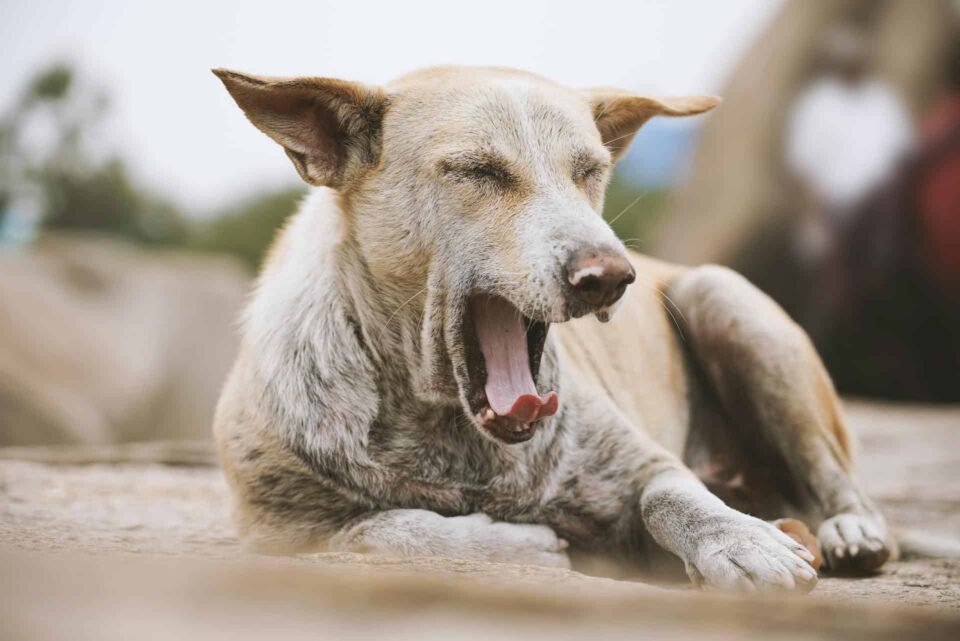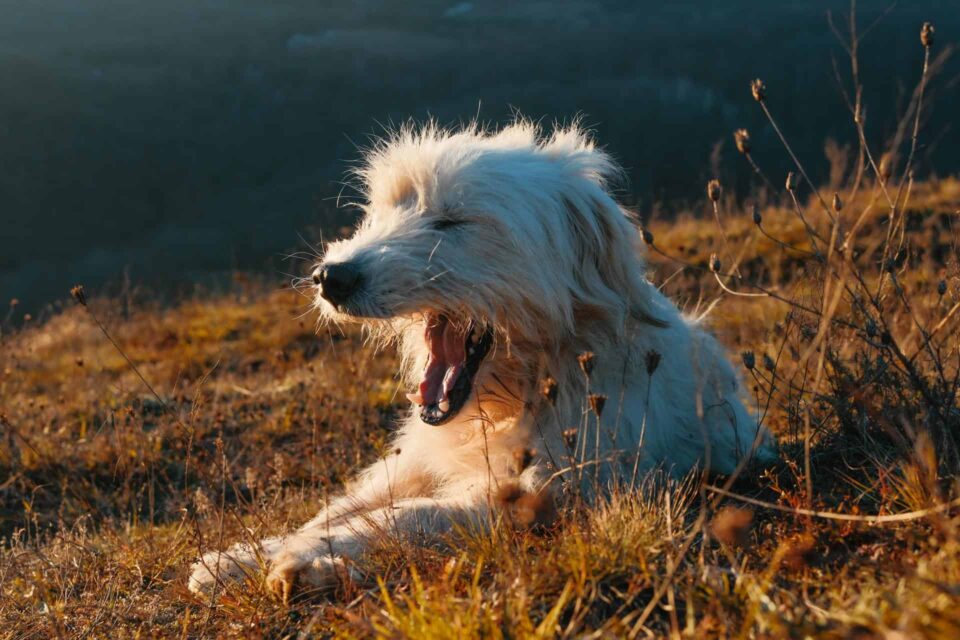Why Do Dogs Yawn? What Your Dog Might Be Telling You
Why do dogs yawn? Discover the reasons behind your dog’s yawning and learn how to respond to their needs with our helpful guide.
When dogs yawn, it can sometimes be puzzling for owners. While yawning is often seen as a sign of tiredness in humans, it can mean many things in dogs.
Understanding why your dog yawns could provide valuable insights into their emotions and overall well-being. Let’s dive into the reasons behind dog yawning and what your dog might be trying to tell you.
Key Takeaways:
- Dogs yawn for multiple reasons, not just because they are tired.
- Yawning can be a sign of stress or anxiety in certain situations.
- Dogs may use yawning as a way to communicate with their owners or other animals.
- It’s important to observe the context in which your dog yawns to understand their feelings.
- Yawning could also be a sign that your dog needs a break or feels overstimulated.
Why Do Dogs Yawn?
Yawning as a Sign of Stress or Anxiety
One of the lesser-known reasons for yawning in dogs is stress or anxiety. If your dog yawns frequently in stressful situations, such as at the vet, during car rides, or when they encounter new people or dogs, it could be their way of coping with nervousness.
This type of yawning helps them calm down and reduce tension. Recognizing this behavior can help you address their anxiety with comforting measures or provide a safe space for them to relax.
Yawning as a Form of Communication
Dogs also yawn to communicate with others. When interacting with their owners or other dogs, yawning can be a way to show that they’re not a threat or to diffuse a tense situation.
For instance, if your dog yawns during playtime with other dogs, it may indicate that they are feeling overwhelmed or need a brief pause. Paying attention to these subtle cues can help you better understand your dog’s emotions and interactions with their environment.
Yawning Due to Tiredness
Of course, dogs, like humans, do yawn when they’re tired. If your dog is yawning after a long day of activity or before settling down for a nap, it’s likely just a sign of exhaustion.
Yawning in this context is perfectly normal and can be a good indicator that it’s time for some rest. You can maintain a consistent routine for your dog to ensure they get enough sleep and relaxation.
Related: Dirt Devotion: Why Dogs Eat Dirt

Other Possible Reasons for Dog Yawning
Yawning as a Social Cue
Yawning can be contagious, even between species. Have you ever noticed your dog yawning after you yawn? This phenomenon is known as “contagious yawning,” and it’s believed to be related to empathy and social bonding.
Dogs may mimic their owners’ behaviors, including yawning, as a way of connecting with them. It’s a subtle sign of the bond between you and your pet.
Yawning to Cool the Brain
Interestingly, some studies suggest that yawning helps cool down the brain. Dogs may yawn after physical exercise or during hot weather as a way to regulate their body temperature and maintain optimal brain function.
This can be especially noticeable after a vigorous play session or walk on a warm day.
What Your Dog’s Yawning Might Be Telling You
Recognizing Signs of Stress
If your dog yawns when they are in a new or uncomfortable environment, it’s likely they are feeling stressed. Recognizing this behavior can help you take steps to reduce their anxiety.
Providing a calming environment and using products like those in the Zen Wellness Care collection from Gou Gou Pets can offer relaxation and comfort.
Understanding Overstimulation
Dogs can become overstimulated in certain situations, such as during playtime or in crowded places. Yawning is their way of signaling that they need a break.
If your dog yawns while interacting with other dogs or children, give them some time to relax and recharge. Creating a peaceful space for your dog is crucial in helping them manage overstimulation effectively.
Yawning as an Attention-Seeking Behavior
In some cases, dogs may yawn to get attention from their owners. If your dog yawns while looking at you or after you’ve engaged with them, it could be their way of trying to communicate or ask for interaction.
Paying attention to these cues helps strengthen the bond between you and your pet. Reward your dog with some attention or a gentle pat when they exhibit this behavior to acknowledge their need for connection.
Related: Red Paws: Unraveling the Reason

How to Respond to Your Dog’s Yawning
Comforting a Stressed Dog
If your dog’s yawning is a sign of stress or anxiety, it’s important to provide comfort and reassurance. You can do this by speaking to them in a calm tone or gently petting them. Ensuring your dog has a quiet, safe place to retreat to can also reduce their anxiety in stressful situations.
If needed, consider using calming products from the Gou Gou Pets Zen Wellness Care line, which can provide additional support during anxious moments.
Giving Your Dog a Break
When you notice your dog yawning during play or interaction, it may be time to give them a break. Let them relax and have some downtime to prevent overstimulation. Ensuring that your dog gets regular breaks during playtime will help maintain their mental well-being and prevent them from becoming too anxious or stressed.
Using Yawning as a Training Cue
Yawning can be a useful signal during training. If you see your dog yawning during a session, it may indicate that they are feeling overwhelmed or confused. This is a good opportunity to slow down, give them a break, or approach training in a different way.
Recognizing their cues will help you tailor the training to your dog’s emotional and mental needs.
Keep your dog energized and refreshed with Gou Gou Pets’ Inner Fuel and Energy Boosting Shampoo. This herbal-infused shampoo is designed to cleanse and rejuvenate your dog’s coat, leaving them feeling refreshed. Enhance their grooming routine and support their overall well-being with this gentle, effective shampoo.
Conclusion
Dog yawning can signify a variety of emotions, from stress and anxiety to simple tiredness. Understanding the context of when and why your dog yawns can give you valuable insights into their emotional and physical state.
By paying attention to these cues, you can provide the comfort, care, and breaks they need to stay happy and healthy. Whether it’s a sign of stress or just a way to cool down after a walk, yawning is a subtle yet significant part of canine communication.
~Veterinarian Recommended